We shouldn’t complain about growing older — the alternative is much worse. Let’s celebrate the opportunity to grow old together with our equine partners.
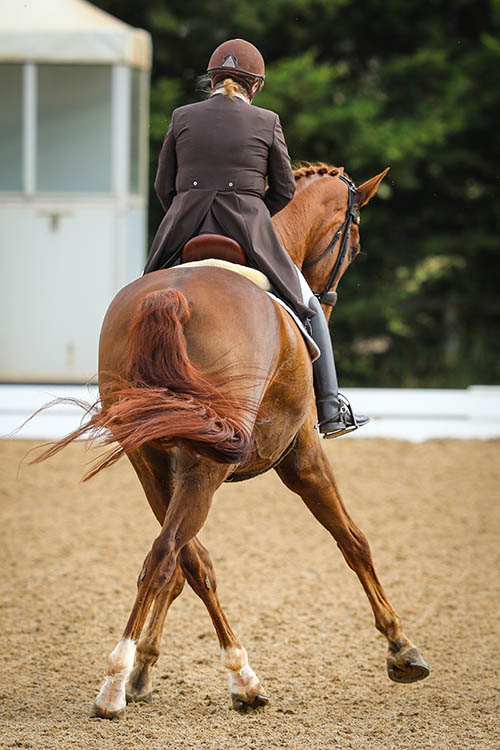
“The Queen still rides
her Fell pony in her 90s.”
Some years ago I wrote an article about the middle-aged rider, but the challenges continue as we get older. Of course, as we age there are physiological changes that can challenge our riding. We lose muscle mass, have reduced cardiac capacity, reduced flexibility and, importantly for horse riding, poorer balance. Balance depends on a number of different systems, including vision, and the vestibular system of our inner ear; the tiny hair-like structures in our inner ear that help us know where we are in space become stiffer as well. So, it is harder for us to rebalance. But if we want to continue to ride safely, we should make some adjustments.
For myself I have found that entering my seventh decade I am becoming a more nervous rider. I am slower to respond to urgent things, both on the ground and when riding. I am more cautious. It is not just a fear of falling off, but a reluctance to do my horses a disservice by not training them well enough. I have noticed an acceleration in the loss of mental and physical fitness to ride. So I am doing things differently.
Just as when I was younger, the harder I work the luckier I get. It takes more work to maintain a level of fitness that is needed to be effective as a rider. An effective rider needs to have the strength and balance to be able to have an independent seat. We need to be stable in the saddle so we can give independent aids. We should not be a burden to our horses, balancing on their mouths, making excuses for ourselves.
REGULAR EXERCISE
I have found that in order to achieve the stability I need, I have to spend time off the horse to maintain my fitness. When I was young my fitness was good enough just by riding plenty of horses and being active. Now I schedule in time for exercise and I reap the rewards. It doesn’t have to be a lot of time; 20 minutes three times a week can be enough to make a difference. A strong focus on core strength, some exercises focused on flexibility, some strength training and a bit of cardio, as well as a short warm-up before I ride, all make a difference.
When you do exercise regularly you are more likely as well to add small exercises into your day incidentally. A few side lunges while you empty the dishwasher, some squats when you are putting the clothes away. Use it or lose it. Keep that body moving and keep asking your joints to keep a range of movement. Yoga and Pilates are both fun and challenging ways to stretch and build core strength. Core exercises are not just those sit-ups we did to flatten our tummies. A plank is a great exercise; to make it harder, try to take a leg off the ground. Then take the opposite arm and reach out in front of you — a core exercise that challenges balance. As you get better at the exercise you can challenge your balance as well by using tools like a bosa ball or another unstable platform to do your squats.
You can go to a gym, or there are many opportunities to utilise online exercise programs, for example, there are various apps and YouTube videos. I recommend getting help with an exercise professional to help you have variety and safe challenges in your program. A personal trainer is likely to help you progress safely, and will encourage you and challenge you. I never work as hard on my own as I do if I have company. An exercise physiologist has a lot more training than a personal trainer. Think about getting advice from an exercise physiologist, especially if you have injuries, illness or specific problems that you have to work around. A physiotherapist can also advise you or work with you to address a problem. If you have private health insurance, you may be able to claim back some of the expenses incurred with the professionals you have on your team.
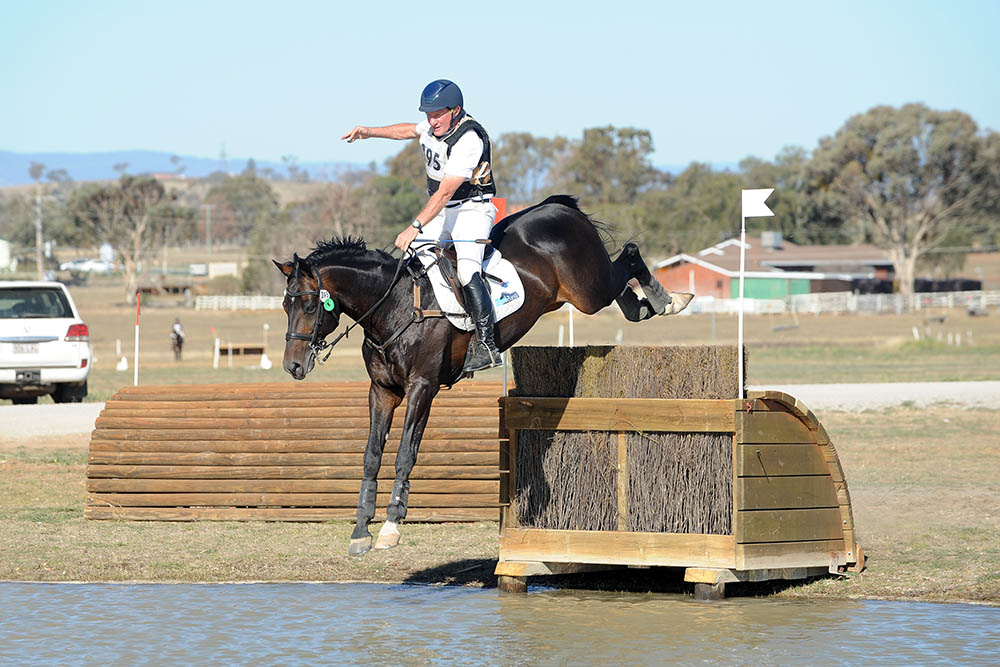
“Use your experience
and your intuition.”
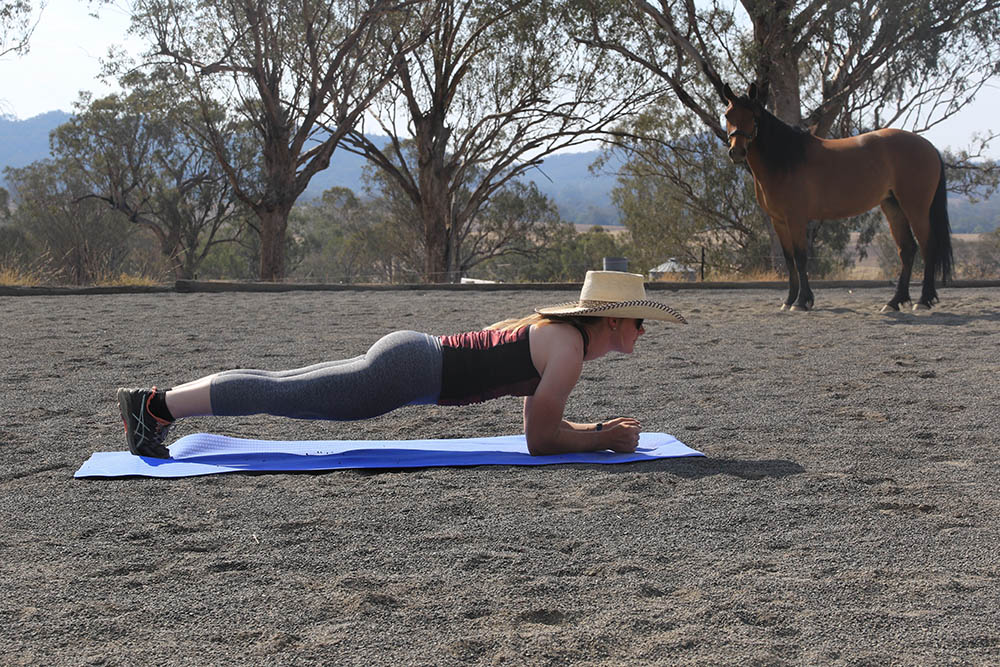
The more variety in your program, the better. If you haven’t exercised before, get a check-up from your doctor, and start slowly. Who wants to have sore muscles? In the past I thought it a kind of badge of honour to have worked so hard that I was stiff and sore. Now I know little and often will get you to the goal more safely and often faster. The last thing you want to do is sustain an injury that stops you from riding.
The exercise you do now is not only going to help you this year, but is an investment in your riding future and in your health generally. Did you know that exercise is the most effective way to prevent Alzheimer’s disease?
THE RIGHT HORSE
One of the most important things to ensure that you enjoy your riding as you get older is to have a suitable horse. Your physical capacity and your bravery are likely to progressively deteriorate as you age, so you can plan for this as well. Try to plan it so you are not having to deal with a young horse when you are not really quick any more. If your trusted equine partner is ageing, you may need to get a new horse. I would advise that you only buy a young horse if you have someone who will help you, or that you can afford to get it professionally trained to start with. Young, inexperienced horses are sometimes unpredictable. They haven’t seen the world. That chestnut Shetland pony that comes around the arena on the lead may be very scary to a young horse who “knows” that horses start at 15hh, so what IS that thing that looks like a horse but is only knee-high?
It is prudent to get someone else to take your young horse out and about, maybe for quite a while. A younger rider will be quicker and more confident, and will give your young horse confidence. I have found that even though I am a rider I now enjoy watching someone else take my youngsters out. It is much less stressful being the owner and not the rider of a young horse. You can have a lot of pleasure seeing your horse going well for someone else, getting the experience he needs to make him a pleasure for the older rider. A pony may have the stable and willing temperament that you need to enjoy your riding. The Queen still rides her Fell pony in her 90s.
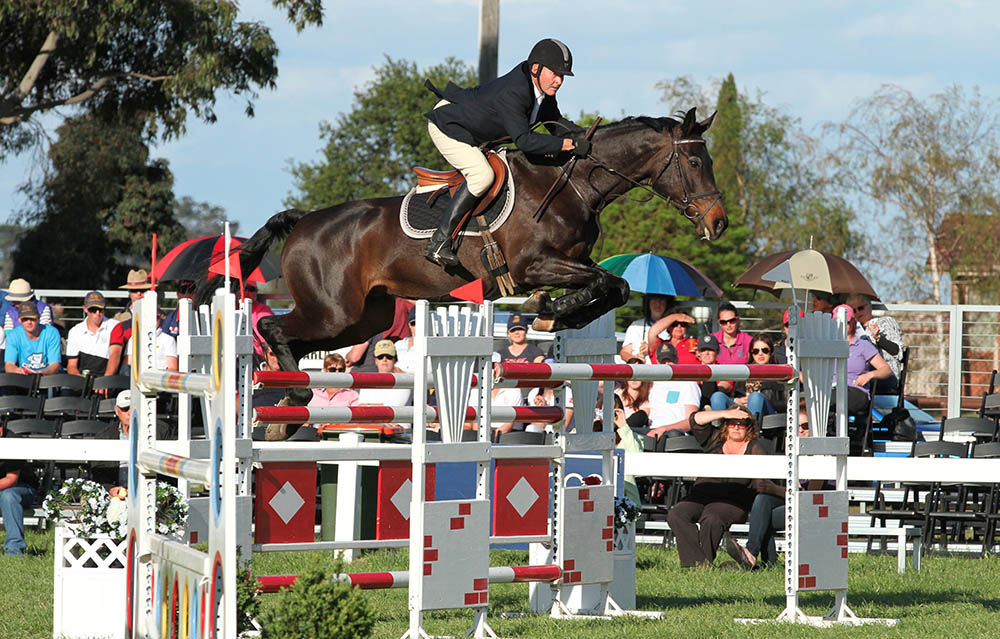
“Set goals that you
can achieve and enjoy.”
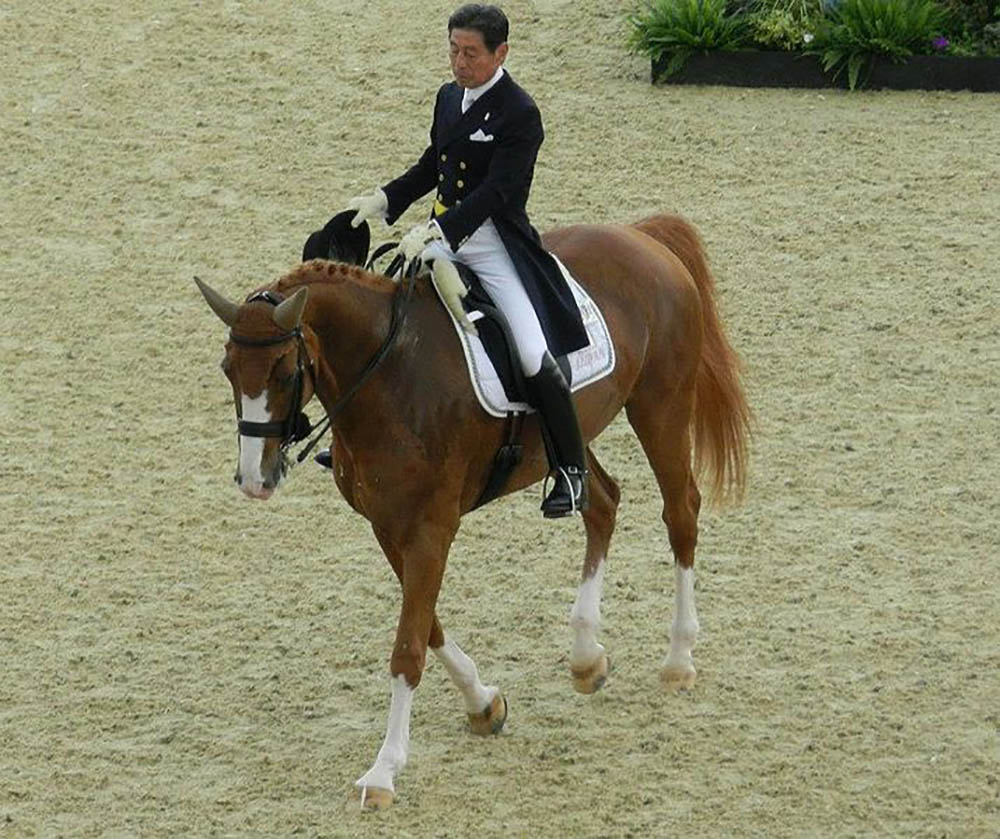
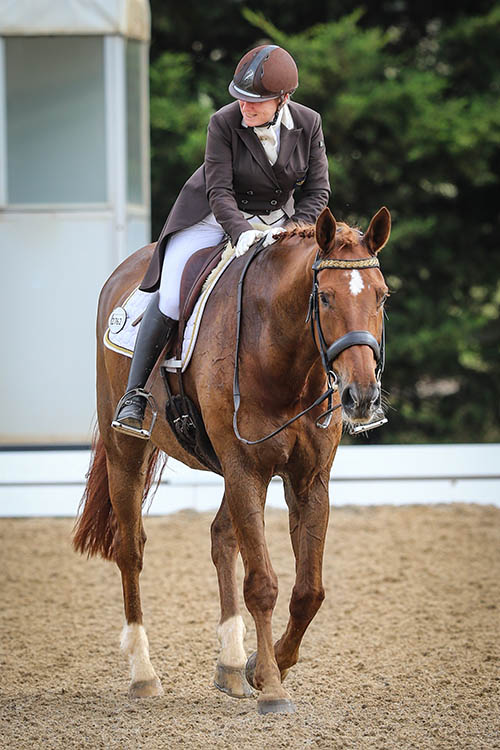
“As you get older
you need to keep
being smarter.”
Prevention is better than cure. Riding is dangerous. Minimise the risk of having that fall that takes your confidence away. Always ride with a helmet. Just because you are experienced and riding your trusted old timer, don’t think you can leave your helmet at home. Don’t be a hero and get on a tense horse. Use your experience and your intuition; you don’t have to prove anything to anyone. Be prudent and do some groundwork or lunge him first. If you don’t really know how to use groundwork exercises to get a horse focused and relaxed, find someone who can teach you to do this.
I find it’s really helpful to once again spend the time off the horse teaching him to yield the quarters, to be soft in his body, to be relaxed, and to approach unfamiliar objects, so I have these tools at my disposal and I can use them to sort something out from the safety of the ground if necessary. There is a huge amount you can teach him from the ground. Skilful lunging can help him be more stable in the contact and so easier to ride, as well as teach him to manage himself over cavalettis and small jumps. You can help him develop balance and collection on the lunge as well.
If you want to read more you can find my article on the middle-aged rider here. I noticed that back then I mentioned not being able to ride a wider horse due to a hip injury. Well, I fixed that by having the offending hip replaced with a shiny new titanium one more than a decade ago. I had a short break from riding, got stuck into Pilates and physio and came back better than I had been for years.
Overall, I think that as you get older you need to keep being smarter about things. You have experience and can in some ways predict the future better because of it. So be smart and use time off the horse wisely to be able to keep enjoying your riding. Have a supportive team of people around you. A good coach, physio, and alternate rider if needed, use your doctors; whomever you need. Set goals that you can achieve and enjoy, don’t waste time comparing yourself to your younger self or those other young ones around you. Get a safe and reliable horse who suits the job you want to do and plan for the future. Take responsibility to be the change you need. Use your riding to help you age well and have fun.
Kerry
EQ
Read more by Dr Kerry Mack:
Building Better Relationships – Equestrian Life, January 2021 issue
Whipping Up Controversy – Equestrian Life, December 2020 issue
The Importance of a Trusting Relationship – Equestrian Life, November 2020 issue
Welcome to Kindergarten for Foals – Equestrian Life, October 2020 issue
The Carrot or the Liquorice? Positive Reinforcement – Equestrian Life, September 2020 issue
Submission or Stress? Something to Chew On – Equestrian Life, August 2020 issue
A Relaxed Horse is a Happy Horse – Equestrian Life, July 2020 issue
The Literate Horse Rider – Equestrian Life, June 2020 issue
Why Horses Love Ingrid Klimke – Equestrian Life, May 2020 issue

